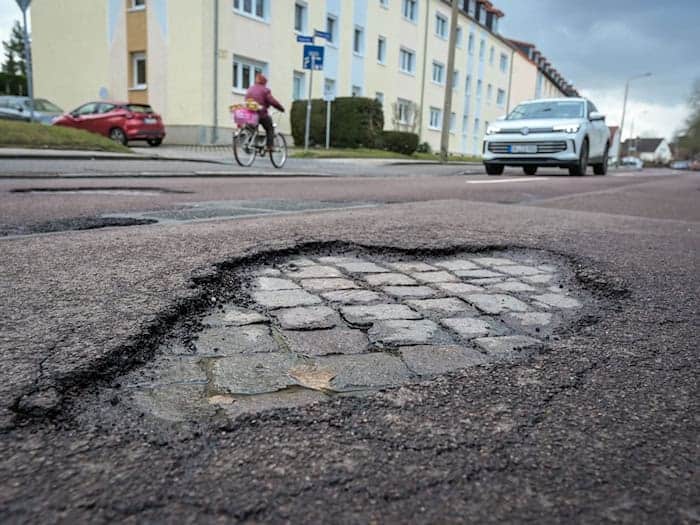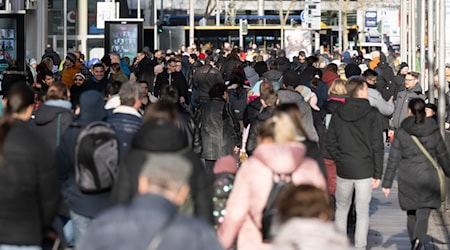Many people in Saxony are facing the same question these days: how do you fill your Christmas list without overdrawing your account? Black Friday and the discount weeks, which now last for days, seem to have come at the right time. The advertising promises are big - 30, 50 or even 70 percent discounts are supposed to be tempting. But are they really true? And how can you recognize a serious offer?
Black Friday originated in the USA and traditionally takes place on the Friday after Thanksgiving - this year on November 28. It is no longer limited to a single day: many retailers are already starting Black Week, extending into Cyber Monday (December 1), which is a shopping day when technology, electronics, household and lifestyle products in particular are offered with special discounts - and often beyond.
We asked the experts: What does Black Friday mean for Saxony - and how can you take advantage of it without falling into the discount trap?
How important is Black Friday for retailers in Saxony?
In Saxony's retail sector, hardly anyone can avoid the discount week today. For many companies - whether in the city center or online - Black Friday and Cyber Monday are now among the best-selling days of the year. Retail expert and Professor of Business Administration and Marketing at Chemnitz University of Technology, Erik Maier, observes: "Almost all Saxon retailers are likely to take part in one way or another." The topic has even reached stationary food retailers.
At the same time, Maier warns: "For many retailers, Black Friday will lead to more purchases, primarily through awareness effects and impulse purchases." However, this could mean that later purchases fail to materialize. Discounts also reduce margins - a risk that particularly affects smaller retailers.
The Saxony Retail Association is also expecting high revenue, albeit slightly lower. "For Black Friday and Cyber Monday, we are again expecting sales of around 250 million euros this year," says Managing Director René Glaser. Many people are currently paying particular attention to the price: "Consumers are particularly price-sensitive right now, in the tense economic situation, and therefore appreciate special offers."
Are the discounts really as big as they seem?
Many offers sound spectacular - in reality, however, the price advantage is often significantly lower, according to analyses. Maier refers to current data:
"Studies from 2024 have shown that the average discount compared to before Black Friday was only 7 percent."
One of the reasons: Many offers refer to the recommended retail price (RRP), not the real street price. This makes the percentage discounts appear larger than they actually are in the end.
How badly will the discount week affect smaller retailers?
While large chains start Black Week with bulging warehouses and sophisticated campaigns, smaller stores often come under pressure. Many can only afford high discounts or aggressive advertising to a limited extent.
Maier describes it like this: "As almost all retailers offer discounts, retailers are forced to take part so as not to be left out. At the same time, small retailers may not have the bargaining power."
Glaser from the trade association also points out the economic burden on many stores. Although the campaign days often bring more customers into the stores, the challenges of remaining profitable grow at the same time. Discount campaigns "often lead to increased pressure on margins against the backdrop of profitability", says Glaser.
What should consumers pay particular attention to?
With the offers, the risk of falling into dubious stores also increases. The consumer advice center in Saxony warns: "Fake stores in particular are no longer a marginal phenomenon, but a systematic and growing problem, especially during promotional periods such as Black Friday."
The figures show the extent of the problem: in 2024, more than 10,000 complaints about fake stores were registered - an increase of 47%. In the first three quarters of 2025, there were already more than 8,000 cases. According to the consumer advice center, around half of the 653 scam sites investigated even placed advertisements on Google or Meta - potentially reaching millions of people.
How can you protect yourself from fake stores?
When buying online, it's worth taking a closer look: A complete legal notice, clear contact details and secure payment methods such as invoice, direct debit, credit card or PayPal are considered important minimum standards. Be careful with extremely low prices, prepayment only or a lack of returns information.
The consumer advice center advises: Consumers should "not get carried away by the discount frenzy. They should compare prices, choose secure payment methods, read customer reviews, read information on return options and exercising the right of withdrawal and, if in doubt, use the fake store finder of the consumer advice center."
At the same time, the organization emphasizes that large platforms are also called upon to act: It is not solely up to consumers to recognize them. Platforms should do more to check whether ads or offers are fraudulent.
Copyright 2025, dpa (www.dpa.de). All rights reserved










